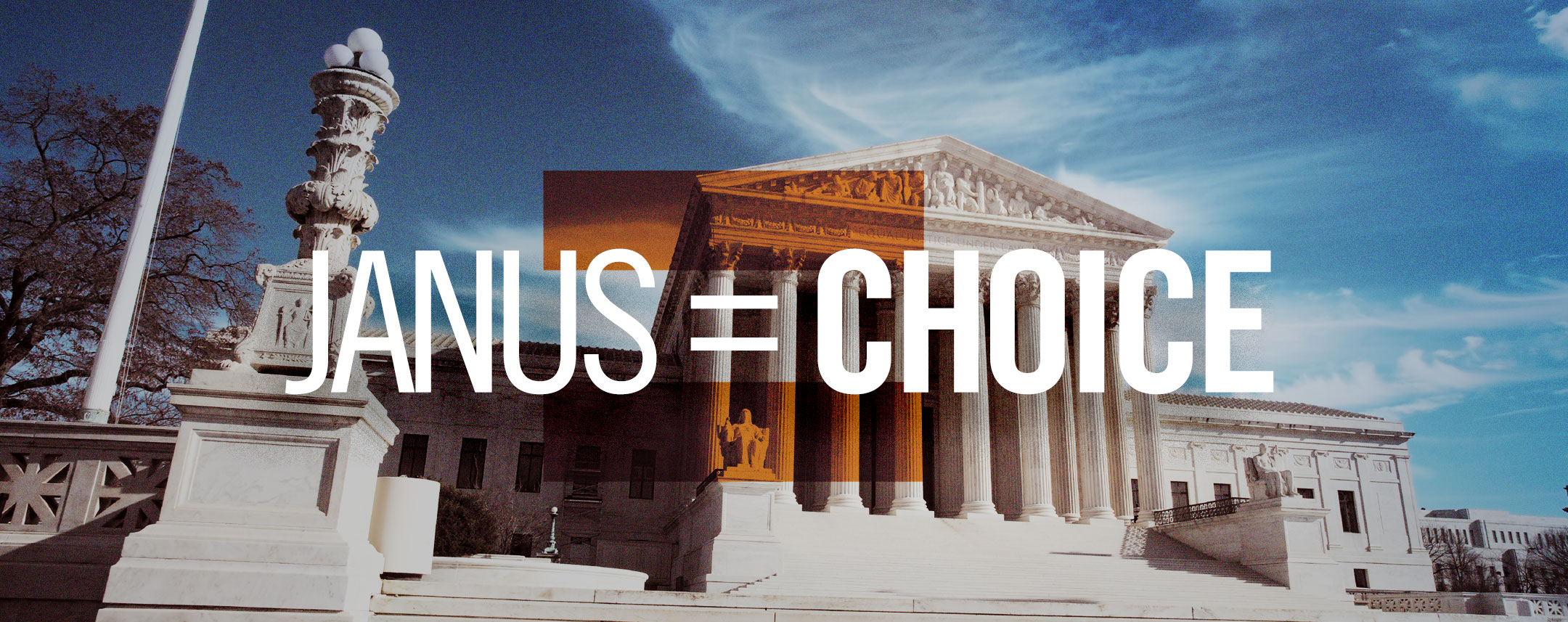Last year, the Supreme Court was set to hold that the First Amendment prohibits the government from requiring public sector employees from paying mandatory union dues. In Friedrichs v. California Teachers Association, the Court appeared ready overrule Abood v. Detroit Board of Education, a 1977 case that blessed this practice. But after Justice Antonin Scalia’s untimely passing, the Court deadlocked 4-4. Thus, Abood survived.
After Justice Neil Gorsuch filled Justice Scalia’s seat, Abood‘s days appear numbered. In June, National Right to Work Legal Defense Fund filed a petition for a writ of certiorari in Janus v. AFSCME, a case that presents the same issue as Friedrichs: whether Abood should be overruled. Last week, the Freedom Foundation filed an amicus brief in support of certiorari in Janus on behalf of itself and Rebecca Friedrichs—the lead plaintiff in the aforementioned case.
National Right to Work Legal Defense Fund and other amicis supporting certiorari eloquently explain why the Court should grant Janus and overrule Abood. The Foundation and Ms. Friedrichs took a different angle: we focused on ensuring the Court asks the right questions. We argued that the Court should grant certiorari and ask the parties an additional question: whether the First Amendment requires states and unions to obtain employees consent before deducting union dues. In other words, are requirements that employees opt-out of union membership unconstitutional? Indeed, in Knox v. SEIU 1000, Justice Alito signaled that allowing states and unions to deduct dues before obtaining employees’ consent is likely unconstitutional. Only by answering this question will the Court ensure that all public employees can effectively exercise their First Amendment rights.
In our brief, we provide several real experiences that illustrate why the Court should also address the constitutionality of opt-out requirements. First, we highlighted how the California Teachers Association has effectively prevented many teachers from opting out through their “check the box” scheme. Second, we focus on how SEIU 775 has engaged in “lawfare” to prevent the Foundation from informing home healthcare providers about their constitutional rights. If SEIU 775 had to get workers to opt-in to union membership, then they would have to take time—not use their union dues to prevent their members from learning about their rights. Third, we explain why choice architecture—the science about how environmental features influence decision making—shows how public employees are being tricked into staying in union membership.
Janus is shaping up to be one of the biggest cases next year. The Court may finally correct its forty-year old mistake and recognize that forcing public employees to pay an agency fee violates the First Amendment. But even if the Court holds as such, it will mean little if workers can’t exercise that right. An opt-in requirement would ensure that the average worker can exercise her right to not pay union dues.











